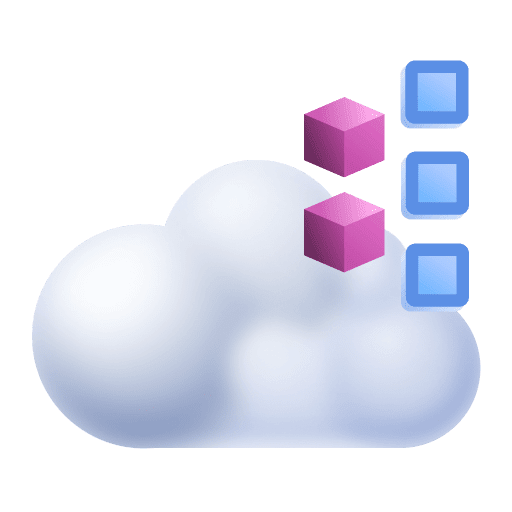Log Monitoring configuration (Logs Classic)
- 5-min read
Log Monitoring Classic
By default, Log Monitoring is activated in your Dynatrace environment. To start ingesting logs, depending on your use case, you need to either configure log storage rules on OneAgents or send logs to ingest APIs.
You can confirm that Log Monitoring is enabled or you can enable it globally or on a host level, but checking the status and enabling or disabling Log Monitoring is optional in most cases. If you plan to use Log Monitoring, you can focus on OneAgent settings that directly affect how Log Monitoring is operating.
Check Log Monitoring status
Optional
You can check if Log Monitoring is enabled in your Dynatrace environment globally (Dynatrace web UI), or you can check if Log Monitoring is enabled on a host level (OneAgent CLI).
-
To check if Dynatrace Log Monitoring is enabled globally:
- Go to Settings > Monitoring > Monitored technologies.
- Find Log Monitoring in the list of supported technologies, and select Edit (pencil icon).
- Check if Monitor Log Monitoring on every host option is enabled.
-
To check if Dynatrace Log Monitoring is enabled on a host level:
Use OneAgent CLI and execute theoneagentctlcommand with the--get-app-log-content-accessparameter to check whether Log Monitoring is enabled:- Linux:
./oneagentctl --get-app-log-content-access - Windows:
.\oneagentctl.exe --get-app-log-content-access
- Linux:
Enable or disable Log Monitoring
Optional
Similarly to checking Log Monitoring status, you can enable or disable Log Monitoring in your Dynatrace environment globally (Dynatrace web UI), or on a host level (OneAgent CLI).
-
To activate Dynatrace Log Monitoring globally:
- Go to Settings > Monitoring > Monitored technologies.
- Find Log Monitoring in the list of supported technologies, and select Edit (pencil icon).
- Turn on Monitor Log Monitoring on every host.
-
To enable or disable Dynatrace Log Monitoring on a host level:
Use OneAgent CLI and execute theoneagentctlcommand-line interface to execute the following command at the individual host level.
Set the--set-app-log-content-accessparameter totrueorfalseto disable or enable Log Monitoring:- Linux:
./oneagentctl --set-app-log-content-access=true - Windows:
.\oneagentctl.exe --set-app-log-content-access=true
Restart OneAgent service to apply changes.
- Linux:
OneAgent settings
Dynatrace Log Monitoring uses the OneAgent log module enabled by default with all OneAgent installations. While Log Monitoring does not require any specific configuration, you can modify some of the options available for the OneAgent log module.
You can adjust:
- Enable and disable automatic log detection for different technologies.
- Define default timezone in containers.
- Enable defining the storage configuration by a configuration file on the host.
- Define specific location where the timestamp and severity occur in your incoming log data.
- Define the maximum number of log group instances per entity.
Global OneAgent settings for Log Monitoring
- Go to Settings > Log Monitoring > OneAgent settings.
- Adjust settings and Save changes.
Host-specific OneAgent settings for Log Monitoring
- Go to
 Hosts Classic and select your Linux host.
Hosts Classic and select your Linux host. - On the host overview page, select More (…) > Settings in the upper-right corner of the page.
- On the Host settings page, select Log Monitoring and Advanced log settings.
- Adjust settings and Save changes.
Default OneAgent settings
Setting
Description
Default
Detect open log files
This option automatically detects logs written by important processes.
enabled
Detect IIS logs
This option allows the detection of logs and event logs written by the Microsoft IIS server.
enabled
Detect system logs
Linux: Detects syslogs, and message logs. Windows: Detects system, application, and security event logs.
enabled
Detect logs on network file systems
This option detects logs stored on the Network File System server. This applies for Linux only
disabled
Allow OneAgent to monitor OneAgent logs
This option allows OneAgent to monitor own logs.
disabled
Detect logs of containerized applications
This option allows the detection of log messages written to the containerized application's stdout/stderr streams. It also detects Kubernetes pod logs.
enabled
Set UTC as default timezone in containers
This sets the default timezone of the containers as UTC.
enabled
Timestamp search limit
Set the timestamp search.
64 bytes
Severity search chars limit
Set the severity search characters limit.
100 bytes
Severity search lines limit
Set the severity search lines limit.
2
Maximum of log group instances per entity limit - count
Set the upper limit for log group instances per entry.
200
Configuration file Optional
The configuration file located on each OneAgent is used to set three options. For security reasons, these options can only be set on the host level and are available only by creating a JSON file in a specific location:
- Linux:
/var/lib/dynatrace/oneagent/agent/config/ - Windows:
%PROGRAMDATA%\dynatrace\oneagent\agent\config\
The configuration file name must have the json extension; the file name is otherwise unrestricted.
By default, these options are set for the OneAgent log module to operate properly and to auto-detect log files on the specific host. Modifying this configuration file is not required.
Multiple configuration files
You can have multiple JSON configuration files in the configuration folder. Files are evaluated in alphabetical order. Options from the last evaluated file takes priority.
Preexisting configuration files
If your OneAgent installation is upgraded, you may find a _migratedloganalytics.conf.json file that contains your configuration migrated from the ruxitagentloganalytics.conf on your host.
During installation, the OneAgent installer may create _loganalyticsconf.ctl.json, which will contain options used during the installation. The same file will be used to store relevant options set by the OneAgentCtl tool.
Available options
-
AppLogContentAccess
Enables access to the log file content on this host. If set tofalse, the log file will be displayed in the user interface, but the content won't be accessible. Note that the OneAgent will still auto-detect log files unless the flagAppLogAutoDetectionis set tofalse. -
AppLogRemoteConfiguration
Enables the manual configuration of logs to be accessed and monitored. If set tofalse, it won't be possible to add logs manually using the settings interface. -
AppLogAutoDetection
Enables auto-detection of log files on this host. If set tofalse, logs won't be auto-detected.
Example
{"agent-configuration": [{"AppLogRemoteConfiguration": true,"AppLogContentAccess": true,"AppLogAutoDetection": true}]}